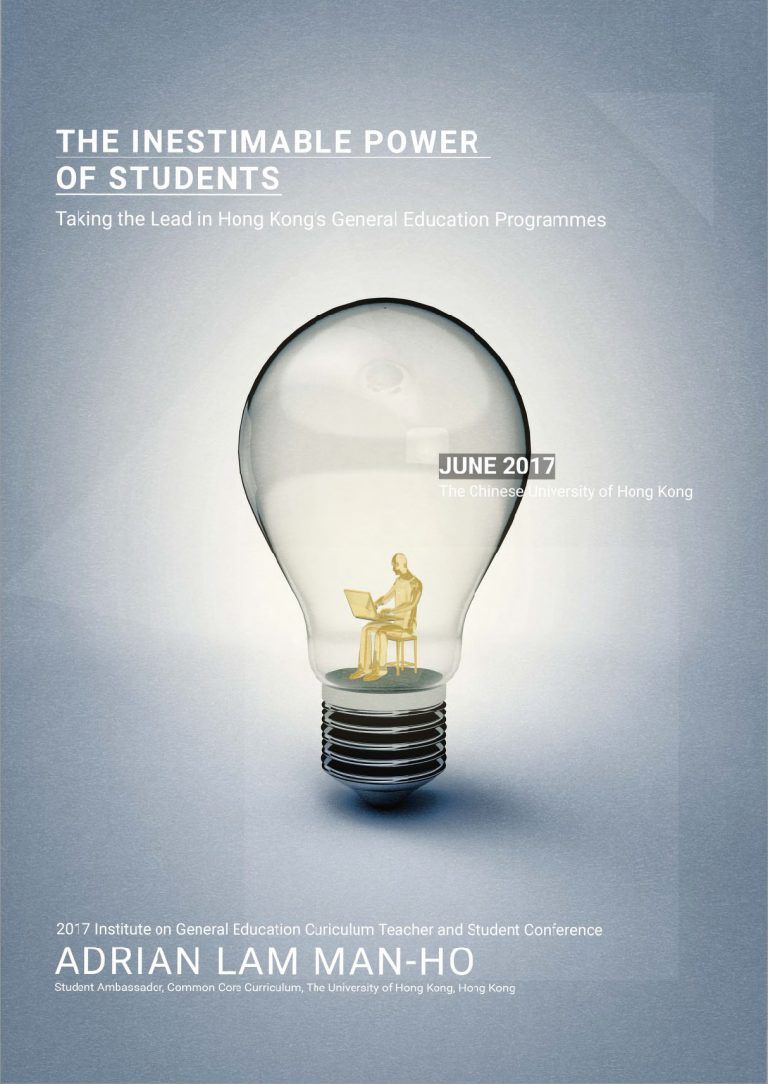A ‘‘Narrowly Diverse’’ General Education and the Inestimable Power of Students
A ‘‘Narrowly Diverse’’ General Education: How Democratic are the University of Hong Kong’s Institutional Channels for Engaging Students for the Common Core Curriculum?
By Adrian Lam, Common Core Student Ambassador
Abstract:
Large discrepancies still exist between the perceptions of teachers and concerns of students as reflected by the continuing difficulties in developing flexible and effective General Education programmes both worldwide and in Hong Kong. The Common Core Curriculum, a variant of General Education at the University of Hong Kong, is getting more mature and complete through its 5th anniversary of implementation this year. However, in line with the global paradigm shift of higher education in the 21st century, with regard to issues like providing feedback, initiating suggestions, and raising questions through the institutional means, one can still get an impression that ‘‘it is always the same group of proactive individuals with endless rephrasing demands’’. One should hence understand why does a relatively comprehensive, free, and organised environment for involving students may not help mobilisation and participation that much. This article argues that the existing institutional channels for student engagement is “narrowly diverse”. They are ‘‘diverse’’ when teacher-centred consultation and learner-centred participation are always presented in different formats. While they are simultaneously ‘‘narrow’’ in terms of quality assurance in curriculum, pedagogy, and assessment as the foundations of both learning and teaching. Although most students prioritise them with higher expectations and values,
the institution instead resorts to top-down but not bottom-up student participatory channels with a lesser extent of ‘‘democratiness’’. Meanwhile, a student-led education
is argued as a more drastic and radical transformation when they can be fully empowered as the genuine designers and users.
Keywords: Higher Education; General Education; Common Core Curriculum;
The University of Hong Kong; Democratic Innovations; Student Engagement



